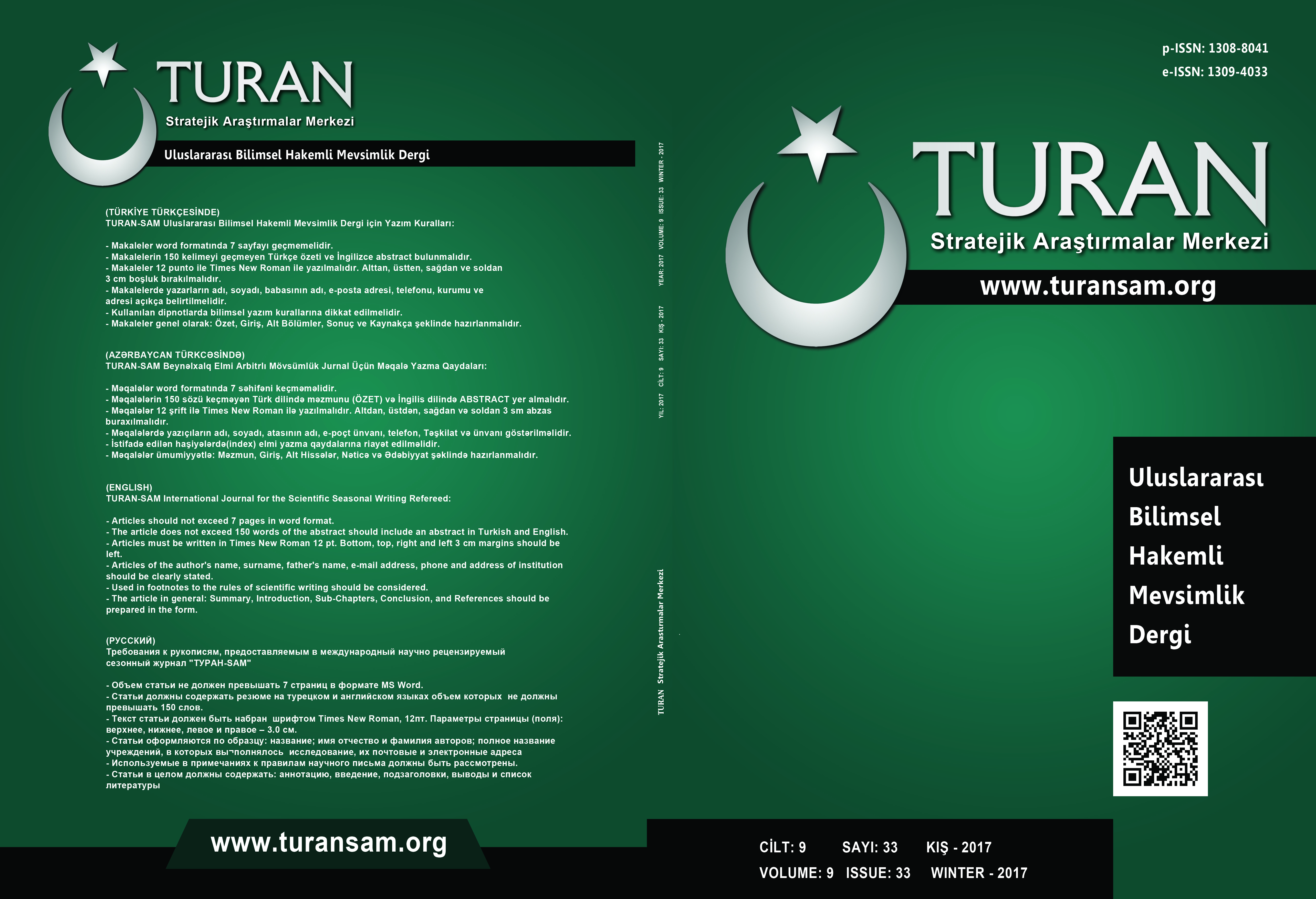Necmettin Hacieminoğlu’nda türkiye’nin aydin sorunsali
Turkey’s question of intellectuals according to Necmettin Hacieminoğlu
Author(s): Ensar YılmazSubject(s): Cultural history, Ethnohistory, Social history, Nationalism Studies, Post-War period (1950 - 1989)
Published by: Sage Yayınları
Keywords: Intellectual; Nationalism; Necmettin Hacıeminoğlu;
Summary/Abstract: Intellectuals’ living in a closed cast system leads to the disconnection of cultural exchange with the wider society. However, e healthy society is based on the integration of their intellectuals and people in sociological terms. The basic issue in sociological terms is ensuring social integration and positive functions of intellectuals this process. In Ottoman period, classical state bureaucracy is classified as İlmiye (ulama; the educated class of Muslim legal scholars/intellectuals/judicial bureaucracy), Kalemiye (administrative bureaucracy) and Seyfiye (military bureaucracy). The most important two aspect of this structure, that is Kalemiye and Seyfiye are comprised of people who are religiously convert/educated in Palace school (Enderun), that is, foreign, noble people by devshirme system also known as the blood tax or tribute in blood, to a great extent and for a long period of time. However, contact with Muslim and Turkish segments of the people continued officially by İlmiye strata, and as a communicative link in social and civic terms by tekkes and zawiyas (dervish lodges) up to the Republican period. This channel was closed with the closure of these dervish lodges. Thus, the disconnection and lack of communication between state and people was deepened and it resulted with a huge question of intellectuals. Hacıeminoğlu, with their thought and writings, brought up this problematic with all its evidence. He had struggled to reestablish the relations between people/society/nation and intellectuals based on history and culture during his lifetime. He tried to mention and problematize the alienation of intellectuals to their own society and culture. He lived as a nationalist intellectual, for 63 years, during his life time. His life had been the projection of Turkey of three decades from 1960 to 1980s. He had modern ideas and he was an exactly modernist person. He was an idealist.
Journal: TURAN-SAM
- Issue Year: 9/2017
- Issue No: 33
- Page Range: 125-136
- Page Count: 12
- Language: Turkish

